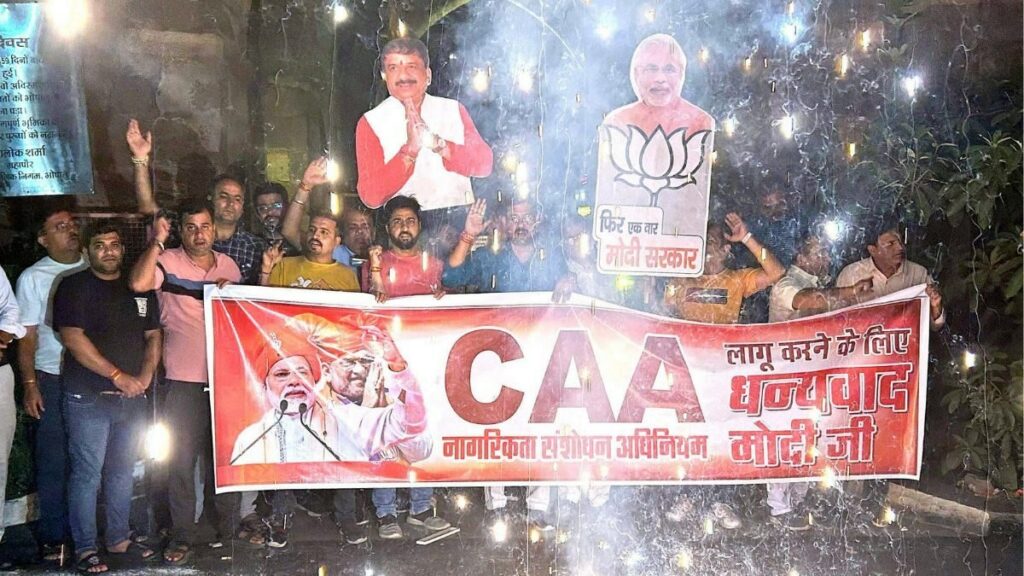The Narendra Modi government on Monday notified the rules of the Citizenship Amendment Act (CAA), almost four years after the citizenship law was passed by Parliament in 2019.
Following the Centre’s official notification, the Ministry of Home Affairs (MHA) on Tuesday released a comprehensive guide busting misleading information on the Citizenship Amendment Act (CAA) circulating on social media. MHA clarified that CAA has nothing to do with the National Register of Citizens (NRC).
Here Are Some Myths About the Citizenship Amendment Act Busted by MHA –
Does CAA affect any Indian citizen?
The Citizenship Amendment Act (CAA) doesn’t affect any Indian citizens, including Muslim citizens in any way.
Who does CAA apply to?
The Citizenship Amendment Act (CAA) applies to Hindu, Sikh, Jain, Buddhist, Parsi and Christian foreigners, who have migrated from Pakistan, Bangladesh, and Afghanistan into India up to December 31, 2014, due to religious persecution faced by them.
It does not apply to foreigners of any other religion, including Muslims migrating to India from any country, including these three countries.
Does this mean Muslims from Pakistan, Bangladesh, and Afghanistan can never get Indian citizenship?
The Citizenship Amendment Act (CAA) does not affect, amend or alter the present legal process of acquiring Indian citizenship by any foreigner of any category through Naturalization (Section 6 of the Citizenship Act) or through Registration (Section 5 of the Act). These processes will stay operational.
Will illegal Muslim immigrants from Pakistan, Bangladesh, and Afghanistan be deported under CAA?
The Citizenship Amendment Act (CAA) has nothing to do with the deportation of any foreigner from India. The deportation process of any foreigner irrespective of his religion or country is implemented as per the mandate of the Foreigners Act, 1946 and/or The Passport (Entry into India) Act, 1920.
Can Hindus facing religious persecution in countries other than Pakistan, Bangladesh, and Afghanistan apply under CAA?
No, the Citizenship Amendment Act does not apply to Hindus facing religious persecution in countries other than Pakistan, Bangladesh, and Afghanistan. They will have to apply through the usual process to get Indian Citizenship just like any other foreigner.
Does CAA also cover other forms of persecution – on grounds of race, gender, membership of a political or social group, language, ethnicity etc.?
The Citizenship Amendment Act (CAA) deals specifically with foreigners of six minority communities who have faced religious persecution in Pakistan, Bangladesh, and Afghanistan. It does not deal with any other forms of persecution on grounds of race, gender, membership of a political or social group, language, ethnicity etc.
Will CAA gradually exclude Indian Muslims from the citizenship of India?
The Citizenship Amendment Act (CAA) does not apply to any Indian citizen at all irrespective of religion. It is not meant to deprive any Indian citizen of his citizenship.
CAA and NRC
The MHA clarified that the Citizenship Amendment Act (CAA) has nothing to do with NRC. The legal provisions regarding NRC have been part of The Citizenship Act, 1955 since December 2004.
What are the rules for citizenship under CAA?
The appropriate rules under the Citizenship Amendment Act (CAA) are being framed.











